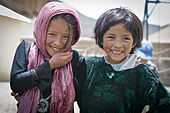Ismail Balkhi
| Syed Ismail Balkhi سید اسماعیل بلخی | |
|---|---|
| Personal details | |
| Born | 1918 Balkhab, Sar-e Pol Province |
| Died | 24 July 1968 Kabul, Afghanistan |
| Profession | Writer, Intellectual, Political |
| Religion | Shia Islam |
|
Part of a series on
|
Sayed Ismail Balkhi (Persian: سید اسماعیل بلخی) was one of the most prominent reformist leaders in 20th-century Afghanistan.[1] An innovative poet and well-known mystic, charismatic political leader and untiring reformist; Balkhi is undoubtedly the figurehead of modern Hazara history.[2]
Early life
Sayed Ismail Balkhi was born in Balkhab district of Sar-e Pol Province in Northern Afghanistan. He received early education in Afghanistan after which he travelled to Iraq for further studies in Islamic theology and jurisprudence. At the time when Balkhi left the country, the Afghan government did not provide enough opportunities to the Hazara people in order to get appropriate education in the country. Balkhi was a Shia by religion and thus associated with the greater Hazara community. Balkhi was introduced to reformist movements popular at that time in the Middle East. He imported these intellectual enhancements to this motherland and started preaching it with a zeal unmatched in a country haunted by social ignorance and political isolation.
Works and achievements
Balkhi spent fourteen years in prison under the charges of conspiring to overthrow the monarchy and establish a republic. The dynamism of Balkhi's personality is that he got his education in an environment (i.e. Iraq) where clerics were either turned into radical revolutionaries like Khomeini and Khamenei or into self-absorbed mystics. He was an exception among all such individuals. Ismail Balkhi was a mystic; he was heavily influenced by Mawlana Jalaluddin Balkhi but in the meantime, he was not unaware of his society. Similarly, Balkhi believed in political change but he never embraced any terrorist ideology or even internationalist approach. His patriotism and love for his country are evident in a number of poems he generated whilst in prison.
Balkhi gave the Afghans a message of freedom and democracy. He preached individual liberty among fellow Hazaras. He taught his kinsmen 'the sayed' an approach free of Shia-oriented sayed racism. He might have had personality flaws like all other individuals of history but he surely is one of the flag-bearers of liberty, peace and unity in Afghanistan.
References
- ↑ "BBCPersian.com | افغانستان | چهلمین سال درگذشت سیداسماعیل بلخی". Bbc.co.uk. Retrieved 2012-05-09.
- ↑ http://www.bashgah.net/modules.php?name=Articles&op=peoples&pid=10633
| |||||||||||||||||
